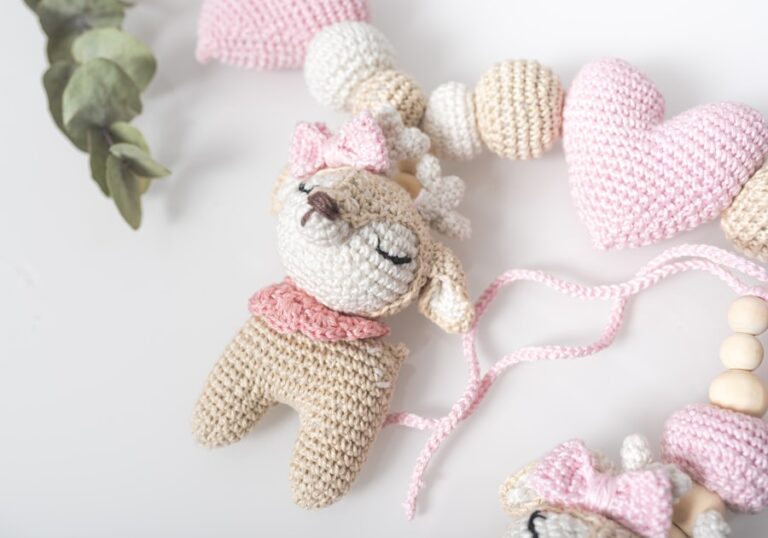How to Pretend You Remember That ‘Important’ Story Your Partner Just Told You
Nonverbal communication plays a significant role in social interactions. Nodding and smiling are common gestures used to convey attentiveness and understanding during conversations. These actions can help maintain engagement even when one’s memory or comprehension is imperfect.
Effective use of nodding and smiling involves maintaining eye contact with the speaker, which demonstrates active listening. Varying the intensity of nods and smiles can express different levels of agreement or interest.
A slight nod and small smile may indicate mild acknowledgment, while more pronounced gestures can convey stronger agreement or enthusiasm.
Body language also contributes to effective communication. Leaning slightly forward can demonstrate engagement, while an open posture suggests receptiveness. Combining these nonverbal cues with appropriate nodding and smiling can create an impression of attentiveness and understanding.
It is important to note that while these techniques can be useful in social situations, they should not be used to deliberately mislead others or feign comprehension in critical contexts where accurate information exchange is essential.
Key Takeaways
- Nodding and smiling can create the illusion of remembering without actually recalling the details.
- Vague responses can buy you time to remember by keeping the conversation going without committing to specific details.
- Using distraction techniques can redirect the conversation away from your forgetfulness and onto a different topic.
- A fake laugh can convince your partner that you’re engaged in the story, even if you don’t remember the details.
- Mirroring your partner’s emotions can make you seem more connected to the story, even if you can’t recall the specifics.
The Strategic Use of Vague Responses: How to Buy Yourself Time to Remember
When faced with a situation where you can’t quite remember something, the strategic use of vague responses can be a valuable tool in your communication arsenal. By providing a vague response, you can buy yourself some time to try to recall the information without exposing your memory lapse. This can be especially useful in social situations where you want to avoid appearing forgetful or disengaged.
One effective technique for using vague responses is to provide a general acknowledgment of what the other person has said without committing to any specific details. For example, you might say something like, “I think I remember hearing about that,” or “That sounds familiar.” These types of responses convey a sense of recognition without making any specific claims about your memory. This can buy you some time to try to recall the details without having to admit that you can’t quite remember.
Another strategy for using vague responses is to redirect the conversation back to the other person. For example, you might say something like, “I’d love to hear more about that,” or “Tell me more about what happened.” This not only buys you time to try to remember the details, but it also shows that you are interested in what the other person has to say. By strategically using vague responses, you can navigate social interactions with finesse and grace, even when your memory is failing you.
The Power of Distraction: Techniques for Redirecting the Conversation Away from Your Forgetfulness

When faced with a memory lapse in a conversation, the power of distraction can be a valuable technique for redirecting the conversation away from your forgetfulness. By subtly shifting the focus of the conversation, you can buy yourself some time to try to remember the details without drawing attention to your memory lapse. This can be especially useful in social situations where you want to avoid appearing forgetful or disengaged.
One effective technique for using distraction is to ask the other person a question about something related to the topic at hand. For example, if you can’t quite remember the details of a story they are telling, you might ask them about a related event or person mentioned in the story. This not only shifts the focus away from your memory lapse, but it also shows that you are actively engaged in the conversation.
By subtly redirecting the conversation in this way, you can buy yourself some time to try to recall the details without exposing your forgetfulness. Another strategy for using distraction is to introduce a new topic or anecdote into the conversation. By seamlessly transitioning into a new story or topic, you can shift the focus away from your memory lapse without drawing attention to it.
This can be an effective way to buy yourself some time to try to remember the details without having to admit that you can’t quite recall them. By mastering the power of distraction, you can navigate social interactions with finesse and grace, even when your memory is failing you.
The Fake Laugh: How to Convince Your Partner That You’re Truly Engaged in the Story
The fake laugh is a powerful tool for convincing your partner that you’re truly engaged in their story, even if you can’t quite remember all the details. By strategically using a fake laugh at key moments in the conversation, you can create the illusion of being fully present and engaged, even when your memory is failing you. One technique for using the fake laugh effectively is to match the intensity of your laughter to the tone of the story being told.
For example, if your partner is recounting a humorous anecdote, you might use a more exaggerated laugh to convey a sense of amusement and enjoyment. On the other hand, if they are sharing a more serious or heartfelt story, a softer chuckle or smile can convey empathy and understanding. By matching the fake laugh to the emotional tone of the story, you can create the illusion of being fully engaged in the conversation.
Another aspect of using the fake laugh effectively is to use it as a way to show support and encouragement for your partner. By laughing at their jokes or humorous anecdotes, you can convey a sense of camaraderie and connection, even if you can’t quite remember all the details of their story. Additionally, using a fake laugh at key moments in the conversation can help to create a positive and lighthearted atmosphere, which can make your partner feel more comfortable and at ease.
By mastering the art of the fake laugh, you can navigate social interactions with finesse and grace, even when your memory is failing you.
The Art of Mirroring: Mimicking Your Partner’s Emotions to Seem More Connected to the Story
The art of mirroring is a powerful technique for mimicking your partner’s emotions in order to seem more connected to their story, even if you can’t quite remember all the details. By subtly mirroring their body language and facial expressions, you can create the illusion of being fully present and engaged in the conversation. One technique for mirroring effectively is to pay close attention to your partner’s body language and facial expressions as they speak.
By subtly mimicking their gestures and expressions, you can convey a sense of empathy and understanding, even if you are struggling to remember all the details of their story. For example, if they are expressing excitement or enthusiasm, you might mirror their smile or nod in agreement. On the other hand, if they are sharing a more serious or heartfelt story, mirroring their more subdued expressions can convey empathy and support.
Another aspect of mirroring effectively is to use it as a way to show validation and understanding for your partner’s emotions. By mirroring their body language and facial expressions, you can create a sense of connection and rapport, even if you can’t quite remember all the details of their story. Additionally, mirroring their emotions can help to create a positive and supportive atmosphere, which can make your partner feel more understood and appreciated.
By mastering the art of mirroring, you can navigate social interactions with finesse and grace, even when your memory is failing you.
The Importance of Follow-Up Questions: How to Seem Interested Without Giving Away Your Forgetfulness

The importance of follow-up questions cannot be overstated when it comes to navigating social interactions with finesse and grace, even when your memory is failing you. By asking thoughtful and engaging follow-up questions, you can seem interested and engaged in the conversation without giving away your forgetfulness. One technique for asking effective follow-up questions is to focus on open-ended inquiries that encourage your partner to elaborate on their story.
For example, instead of asking yes-or-no questions, try asking questions that begin with “how” or “why” in order to prompt more detailed responses. This not only shows that you are actively engaged in the conversation, but it also gives you more time to try to remember the details without exposing your memory lapse. Another strategy for asking effective follow-up questions is to use them as a way to show support and encouragement for your partner.
By asking thoughtful questions that show genuine interest in their story, you can create a sense of connection and rapport, even if you can’t quite remember all the details. Additionally, asking engaging follow-up questions can help to keep the conversation flowing smoothly and naturally, which can make your partner feel more valued and appreciated. By mastering the art of asking effective follow-up questions, you can navigate social interactions with finesse and grace, even when your memory is failing you.
The Graceful Exit: Tips for Ending the Conversation Without Exposing Your Memory Lapse
The graceful exit is an essential skill for anyone who wants to navigate social interactions with finesse and grace, even when their memory is failing them. By knowing how to end a conversation gracefully without exposing your memory lapse, you can leave a positive impression on others while avoiding any potential embarrassment. One technique for making a graceful exit is to express gratitude for the conversation before excusing yourself.
For example, you might say something like “It was great catching up with you,” or “I really enjoyed our chat,” before politely excusing yourself from the conversation. This not only shows that you value the interaction, but it also allows you to leave on a positive note without drawing attention to any memory lapses. Another strategy for making a graceful exit is to offer an alternative way to continue the conversation at a later time.
For example, you might say something like “Let’s continue this conversation over coffee sometime,” or “I’d love to hear more about that later.” This not only leaves the door open for future interactions, but it also allows you to gracefully end the conversation without exposing any memory lapses. By mastering the art of making a graceful exit, you can navigate social interactions with finesse and grace, even when your memory is failing you. In conclusion, navigating social interactions with finesse and grace, even when your memory is failing you, requires mastering a variety of techniques and strategies.
From nodding and smiling effectively to using vague responses strategically, from employing distraction techniques to mastering fake laughter and mirroring emotions skillfully – each skill plays an important role in creating an illusion of being fully present and engaged in conversations despite memory lapses. Additionally, asking engaging follow-up questions and making graceful exits are essential skills for leaving positive impressions on others while avoiding potential embarrassment due to memory lapses. By mastering these techniques and strategies, anyone can navigate social interactions with confidence and ease, regardless of their memory challenges.
FAQs
What are some tips for pretending to remember an important story your partner told you?
Some tips for pretending to remember an important story your partner told you include nodding and making eye contact, asking follow-up questions, and using general statements like “That’s so interesting” or “I remember you mentioning that.”
Why is it important to pretend to remember your partner’s stories?
Pretending to remember your partner’s stories shows that you are attentive and care about what they have to say. It can also strengthen your relationship by making your partner feel heard and valued.
What are some non-verbal cues that can help you pretend to remember a story?
Non-verbal cues such as nodding, making eye contact, and using facial expressions can help you pretend to remember a story. These cues can convey engagement and interest in the conversation.
How can you ask for clarification without revealing that you don’t remember the story?
You can ask for clarification by saying something like “Can you remind me what happened next?” or “I think I might have missed some details, can you tell me more about that?”
Is it okay to admit that you don’t remember a story your partner told you?
It’s okay to admit that you don’t remember a story your partner told you, but it’s important to do so in a considerate and respectful manner. You can apologize for not remembering and express genuine interest in hearing the story again.






